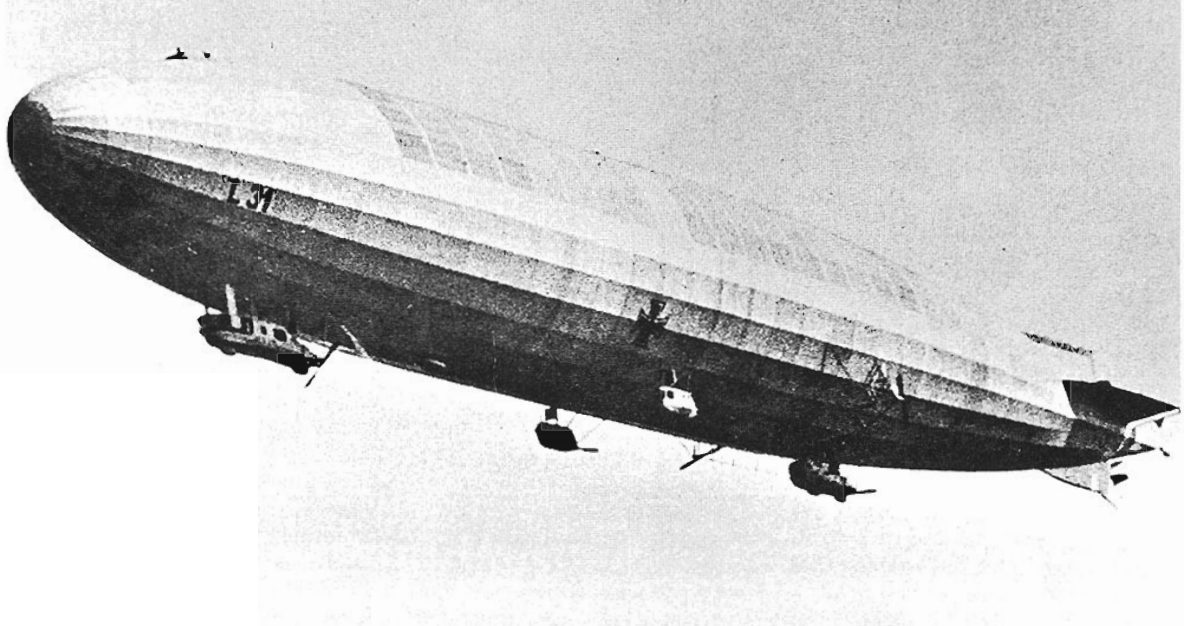On Oct. 3, 1916, dozens of people flocked to a farmer’s field just north of London at a place called Potters Bar to see the grisly spectacle of the crash site of a Zeppelin airship. The owner of the property charged a shilling to see the carnage, promising to use the money to cover damages to his property and turn the remainder to the Red Cross.
For nearly two years, Britain suffered helpless outrage as German airships, particularly Zeppelins, rained destruction on military targets, killing more than 100 citizens and injuring hundreds more. The Germans called airship pilots Knights of the Air—the British called them baby-killers.
Airships were part of Germany’s plan to destroy war factories and break the spirit of the British through strategic bombing. Zeppelin raids destroyed an estimated one-sixth of British munitions output to 1916.
Planes of the day took a long time to climb to the high-altitude realm of the airship—so long that the airships had time to unload their bombs and sail away through the night sky.
But by the fall of 1916, the British had developed some defences, chief among which was dispatching aircraft to make the long climb to effective range before the airships arrived.

LZ 72. [wikimedia]
Hit by newly developed incendiary bullets, the airship lit up “like an enormous Chinese lantern,” reported Tempest. As the flaming airship fell, its pilot and several of his 18 crew members jumped to their death.
Below, “a shout of mingled execration, triumph and joy…rising from all parts of the metropolis, ever increasing in force and intensity” came from the thousands watching the Zeppelin’s demise, reported Michael MacDonagh.
Tempest was awarded the Distinguished Service Order and later flew 34 bombing missions, also earning a Military Cross. After the war, he returned to Canada.
Advertisement






















